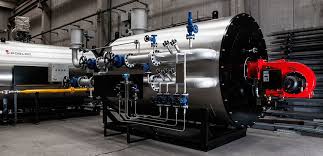
7-р сар . 29, 2024 17:51 Back to list
Monitoring and Controlling the Temperature of Water in Industrial Boiler Systems for Optimal Efficiency
Understanding the Temperature of Water in a Boiler
Boilers play a crucial role in various applications, from heating residential spaces to generating steam for industrial processes. One of the key factors influencing the efficiency and safety of a boiler system is the temperature of water within it. Maintaining optimal water temperature is essential for effective operation and preventing hazards.
The Basics of Boiler Functionality
A boiler operates by converting water into steam or hot water through the application of heat. This heat can be generated by burning fossil fuels, electricity, or utilizing alternative energy sources like solar energy. The temperature of the water in a boiler is determined by several parameters, including the heat source, the design of the boiler, and the specific needs of the system it serves.
Importance of Water Temperature
The temperature of the water in a boiler affects several crucial aspects
1. Efficiency Higher water temperatures often lead to a more efficient heating process. For steam boilers, a temperature of around 100°C (212°F) is usually required to produce steam effectively. However, operating at excessively high temperatures can lead to inefficiencies due to heat losses and increased energy consumption.
2. Safety Maintaining the correct temperature is vital for safety. Overheating can cause pressure buildup, which may result in dangerous situations, including explosions. Safety valves and pressure relief systems are essential components that help regulate pressure and prevent accidents.
3. Longevity of the Boiler Operating a boiler at excessively high temperatures can accelerate wear and tear on the equipment. Proper temperature management can extend the lifespan of the boiler and reduce the need for frequent maintenance or replacement.
temperature of water in boiler

Monitoring and Control
To ensure that the water temperature remains within safe and efficient parameters, modern boilers are equipped with various monitoring and control systems. These systems enable operators to
- Adjust temperature settings Depending on the application, operators can set the desired water temperature. For example, industrial boilers may require higher temperatures than those used for residential heating.
- Automatic controls Many modern boilers are equipped with automated systems that adjust fuel input and energy output based on real-time temperature readings, ensuring optimal efficiency and safety.
- Alarms and alerts Advanced boilers can trigger alarms if temperatures exceed or fall below predetermined thresholds, enabling operators to take immediate action to prevent potential hazards.
Conclusion
The temperature of water in a boiler is a fundamental aspect of its operation, impacting efficiency, safety, and longevity. As technologies evolve, the methods for monitoring and controlling boiler temperature continue to improve, leading to more efficient and safer systems. Whether used in homes or industries, understanding and managing water temperature in boilers is essential for ensuring optimal performance and reliability.
Proper training for operators, regular maintenance, and adherence to safety standards are vital to achieving these goals. As we move towards more sustainable energy solutions, continued innovation in boiler technology will further enhance the importance of effective temperature management, ensuring a safe and efficient future for heating systems across diverse applications.
-
Best Steam Boiler Design PDF Free Design Calculation & Diagram Downloads
NewsJun.10,2025
-
Hot Boiler Water Heater Efficient Heating Solutions for Home & Commercial Use
NewsJun.10,2025
-
Steam Boiler Safety Devices High-Quality Protection Valves
NewsJun.10,2025
-
Ultimate Steam Boiler Checklist for Safety & Efficiency
NewsJun.10,2025
-
Optimal Hot Water Boiler Temperature Setting Guide
NewsJun.10,2025
-
Effective Hot Water Boiler Chemical Treatment Protect & Maintain
NewsJun.09,2025
Related PRODUCTS






















